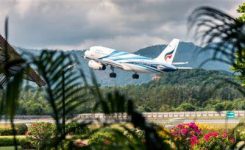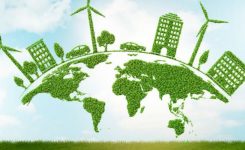E-News, coesione, diritti umani ed uguaglianza, cooperazione, climate change, In Evidenza, Ultime Notizie, Notizie
EDWIN MINO: “nessuno resti indietro”
Quale miglior momento per parlare di cittadinanza, dei diritti dei cittadini e della cittadinanza mondiale in coincidenza dei 231 anni dalla Dichiarazione della Rivoluzione francese della Dichiarazione dei diritti dell’uomo e da quando è stato affermato che la ragione e le relazioni umane devono essere alla base del viver civile.
231 anni dopo, alla luce di questa pandemia che sta colpendo il mondo, dobbiamo riflettere sulla società che vogliamo costruire. Cominciamo a ricostruire il senso della cittadinanza quale riconoscenza e pieno esercizio dei diritti fondamentali, che dobbiamo mettere in evidenza.La scrittrice spagnola Almudena Grandes afferma che i nostri avi ci hanno insegnato che i diritti non difesi si perdono. Oggi possiamo ratificare con la road map dell’Agenda 2030 che le Regioni e i cittadini vogliono che tutto ciò possa essere portato a termine. In alcune zone del mondo si dice: “resta a casa!”, ma senza servizi fondamentali e senza un salario minimo. In questo momento i contagi sono più forti nei paesi in via di sviluppo perché la gente va alla ricerca di un lavoro. L’obiettivo fame-zero è un’utopia. Diritti classici ma fondamentali ai quali dobbiamo aggiungere nuovi diritti, quelli digitali compresi, ma in continenti come America o Africa sono una grande sfida per tutti.
Per questa nuova lotta per i diritti, abbiamo tre possibilità: l’Agenda 2030, i 17 obiettivi che devono essere raggiunti nel corso di questa decade. Nel post-Covid, dobbiamo sviluppare e pensare di più agli acceleratori di cui ci parla l’ONU per raggiungere questi obiettivi, per non permettere che nessuno rimanga indietro e affincè questi problemi strutturali della pandemia non colpiscano i più sfavoriti o i gruppi più deboli. Abbiamo la seconda road map, il cambiamento climatico, gli accordi di Parigi e il ruolo che abbiamo dato alla natura che ci ha dimostrato che il cambiamento climatico è qui, e pertanto è necessario agire.
La terza via è l’Agenda Urbana che dal Foro delle Regioni abbiamo battezzato come Agenda Urbana e dei diritti al territorio. La pandemia ci porta a ridefinire l’urbanizzazione e la visione del territorio urbano. Adesso bisogna decidere con chi farlo, dobbiamo dire categoricamente che qualche cosa deve essere accantonata e costruire qualcosa di nuovo.
La crisi degli Stati-nazione è evidente come è evidente che c’è molto da fare; pertanto ci sono livelli sub-nazionali, Municipi e Regioni, che si sono trovati in prima fila di fronte alla pandemia, e vorrei esprimere riconoscenza a tutti i lavoratori dei sistemi di salute pubblica del mondo per il lavoro svolto. Questa situazione, in mezzo a questa pandemia, fa nascere problemi di razzismo e con limitazione di risorse per i livelli sopra-regionali. Cosa proponiamo?
Dobbiamo decentrare con maggiore profondità, con maggior risorse per superare le ineguaglianze territoriali, dobbiamo costruire dal locale migliori sistemi di partecipazione cittadina, di pianificazione, di revisione dei conti come è stato recentemente detto dall’ex Presidente dell’Ecuador Maria Fernandez Espinosa: lavorare a tutti i livelli del governo, la governance multilivello.
Infine, come diceva il nostro Presidente, Mohamed Boudra, tutto questo assume un nuovo impatto sociale che potrà implicare un nuovo patto territoriale e come dice il nostro Segretario generale delle Nazioni Unite, la solidarietà quale guida comportamentale e la lotta permanente per la pace oggi più che mai colpita dalla disperazione dei popoli.
What better time to talk about citizenship, citizens’ rights and world citizenship to coincide with the 231 years since the French Revolution’s Declaration of Human Rights and since it was stated that reason and human relations must be the basis of civilised living.
231 years later, in the light of this pandemic that is affecting the world, we must reflect on the society we want to build. The Spanish writer Almudena Grandes says that our ancestors taught us that undefended rights are lost. Today we can ratify with the road map of Agenda 2030 that the regions and citizens want this to be completed. In some parts of the world they say: “stay at home!” but without basic services and without a minimum wage. At the moment the contagions are stronger in developing countries because people are looking for work. The fame-zero goal is a utopia. Classic but fundamental rights to which we must add new rights, including digital rights, but in continents like America or Africa they are a great challenge for everyone.
For this new fight for rights, we have three possibilities: Agenda 2030, the 17 objectives that must be achieved during this decade. In the post-Covid period, we need to develop and think more about the accelerators that the UN is telling us about in order to achieve these goals, so that no one is left behind and these structural problems of the pandemic do not affect the most disadvantaged or the weakest groups. We have the second road map, climate change, the Paris Accords and the role we have given to nature, which has shown us that climate change is here, and so action is needed.
The third road is the Urban Agenda, which we have baptised from the Forum of Regions as the Urban Agenda and Rights to Territory. The pandemic leads us to redefine urbanization and the vision of the urban territory. Now we have to decide with whom to do it, we have to say categorically that something must be set aside and build something new.
The crisis in the nation-states is as obvious as it is evident that there is a lot to be done; therefore there are sub-national levels, municipalities and regions, which have found themselves in the front row in the face of the pandemic, and I would like to express my gratitude to all the workers in the public health systems of the world for the work they have done. This situation, in the midst of this pandemic, gives rise to problems of racism and limited resources for supra-regional levels. What are we proposing?
We need to decentralize with greater depth, with more resources to overcome territorial inequalities, we need to build from the local better systems of citizen participation, planning, auditing as was recently said by the former President of Ecuador Maria Fernandez Espinosa: work at all levels of government, multi-level governance.
Finally, as our President, Mohamed Boudra, said, all this takes on a new social impact that may imply a new territorial pact and, as our UN Secretary-General says, solidarity as a behavioural guide and the permanent struggle for peace today more than ever affected by the desperation of peoples.







